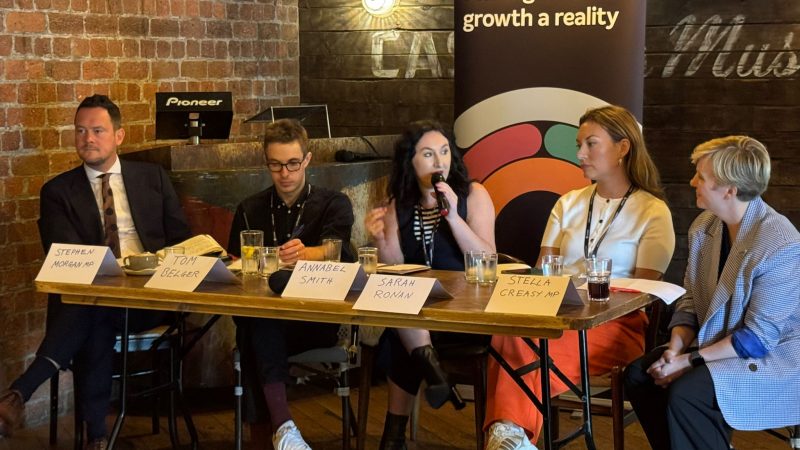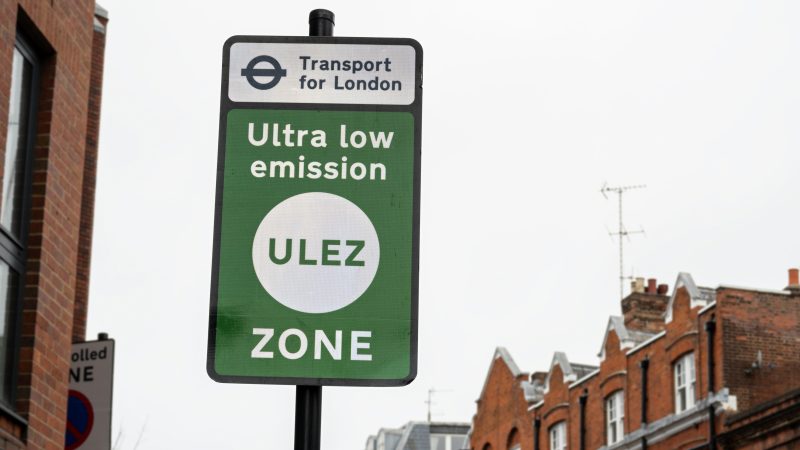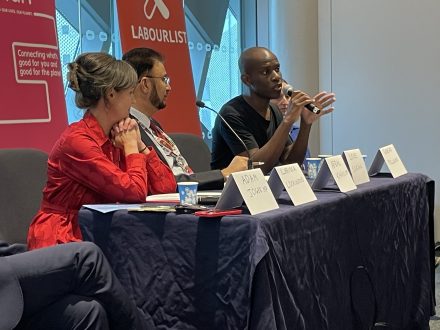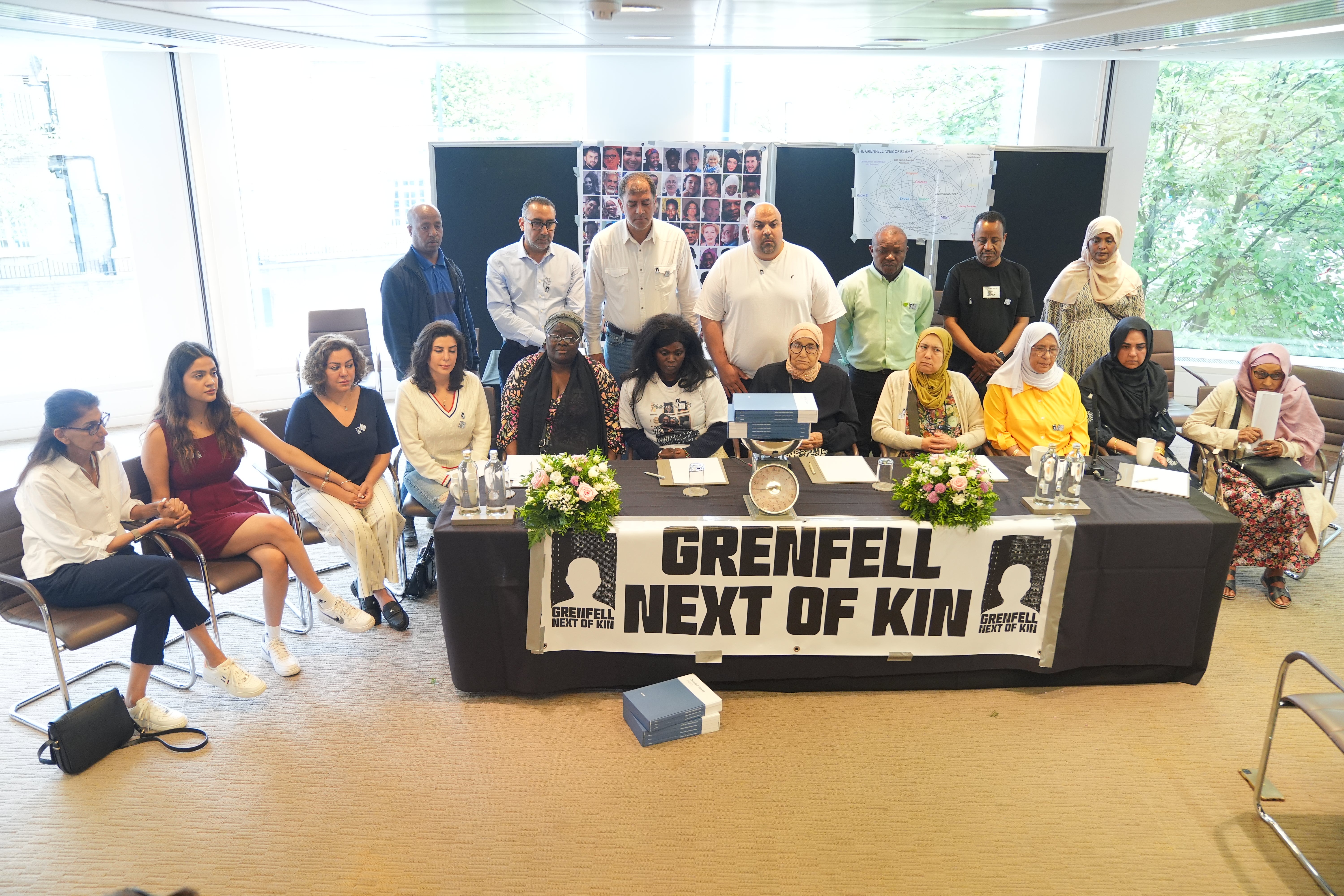UK
LABOUR CONFERENCE
‘Childcare is an essential part of economic infrastructure – and it needs to be universal’, says Stella Creasy

Childcare is as an essential part of economic infrastructure as roads and public transport and extensive work is required to transform current provision into a universal system, a panel at Labour conference has said.
At a LabourList event on childcare, in partnership with the Centre for Progressive Policy, Labour MP and Mummafesto podcast host Stella Creasy that a functioning childcare system is “absolutely vital” for delivering growth, “in the same way we have a functioning road system and public transport systerm”.
She said that the government first has to “steady the ship” after the mess left behind by the Conservative government in this area.
“There has been a 50 percent increase in the number of closures of childcare settings in the last year, even when that money has gone in – 30 percent of nurseries are using temporary staff to fill the gap,” she explained.
Creasy also said childcare needs to fit into a broader conversation about the kind of workplace and family life we want everybody to have.
“Childcare doen’t sit in a vacuum. It sits in that concept of what makes it worthwhile to be able to work, to be able to have a family, to be able to see your partner and to not be permanently in need of more than four hours of sleep.
“Other countries understand this and they are moving towards what ultimately we need to get to, which is a universal system in stages.
“We are so far away from that in this country and, as a consequence, we are suffering economically.”
‘Devalued and demoralised’
Annabel Smith said that the workers in the childcare sector are “devalued and demoralised”, but said that, with a recruitment and retention crisis, policy areas could help address some of those issues, in particular by introducing pay scales similar to that in the teaching sector.
She welcomed the recognition and political salience of childcare in recent years, particularly following the expansion of free childcare for working parents.
However, she also addressed the “elephant in the room” and said: “The workforce is already under significant pressure. We’ve done work recently on what the full rollout would entail in terms of the workforce – it would drive it up by 52 percent, which would be about 28,000 new full-term workers.
“Clearly, there is a lot of work to do – if you are driving up demand so highly, you also need to drive up supply.”
Tory childcare plans were ‘politics, not policy’
Sarah Ronan, director of the Early Education and Childcare Coalition, also said that the announcement by the previous Conservative government to expand free childcare provision was a “watershed moment in terms of recognising the role of childcare as vital infrastructure” but criticised the lack of consultation around the announcement and said the measure was about “politics, not about policy”.
She said: “It wasn’t about delivering what families really need and what children really need. It was about taking the wind out of Labour’s sails on the issue of childcare.”
Ronan said the way the Conservatives’ policy was introduced provoked a range of problems, particularly for local authorities, and crucially “it also created this sense that subsidised childcare is a reward for going to work, not an enabler of it”.
She said that reform to ensure the scheme benefits the most disadvantaged people would ensure that free childcare provision fulfils its potential.
‘Early years a priority for new government’
Stephen Morgan, minister for early education, said that early years would be a priority for the new administration and was also critical of the Conservative inheritance left for the Labour government, describing the policy as being equivalent to announcing a mission to the Moon without a plan to build the rocket.
He said: “The Tories left a trail of devastation across education, a black hole in our national finances and a pledge without a plan on childcare and early education.
“As a new minister, I’ve been genuinely shocked by how irresponsible the last government was on this.”
Morgan was questioned about the Bell Review into early years, which is understood to have urged Labour to develop and publish a strategy on early childhood education and care in its first year of government.
He said that the findings of the report would “inform what we do next” and said: “If we are going to deliver on giving children the best start in life, we’ve got to work with everyone to make that happen.”
Campaigners and MPs call for air quality to be addressed as a ‘social justice issue’

Campaigners and MPs have called for more emphatic action to tackle air pollution in Britain at this year’s Labour Party Conference in Liverpool.
The LabourList event, in partnership with Global Action Plan and Impact on Urban Health, highlighted the challenges posed by high levels of air pollution in many parts of the country.
The issue has been thrust into public conversation in recent years amid health warnings over pollution and measures to combat it such as the London Ultra-Low Emission Zone.
Larissa Lockwood, Director of Clean Air at Global Action Plan, says the issue of clean air is “a social justice issue”. She argued: “It really is a problem that we need to solve. It is a luxury that at the moment we cannot afford.”
A WHO report from 2018 found that 93% of the world’s children under 15-years-old breathe air of poor enough quality to put their health and development at risk.
READ MORE: LabourList events not to miss on Sunday – from our rally to debates on childcare, privatisation and the Greens
Speaking at the event, Dr Sinead Millwood, a GP and clean air activist, called for a major public health campaign against the risks posed by toxic air.
She said: “Air pollution has actually overtaken other risk factors like high blood pressure, diabetes, obesity, smoking, to become the number one leading cause of poor health worldwide.”
The panel also discussed prospective solutions to the air quality crisis, with musician and campaigner Love Ssega suggesting making public transport free in an effort to reduce pollution emissions from mass car use.

He added: “It’s important to highlight the lack of diversity within the UK climate space.”
Adam Jogee, Labour MP for Newcastle-under-Lyme, spoke about specific air quality issues facing his constituency and noted the slightly intangible nature of the threat.
“The late Queen used to say that she had to be seen to be believed. “We won’t be able to see air, but we have to talk about the impact and the consequences the doctors and health professionals have to deal with.”











